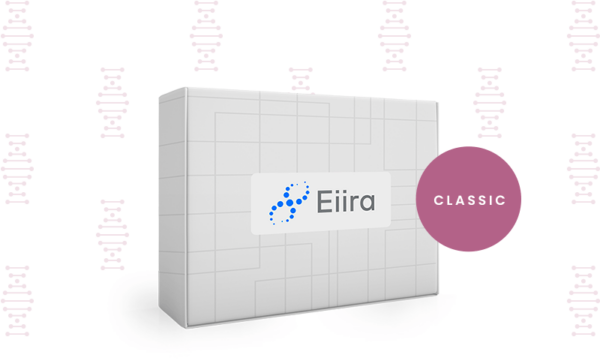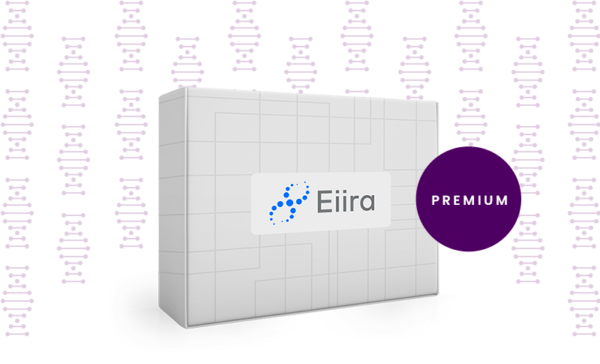
- What is pancreatic cancer?
- Risk factors of pancreatic cancer
- What aggravates pancreatic cancer?
- What are the symptoms of pancreatic cancer?
- Can pancreatitis be a precursor for pancreatic cancer?
- What are the chances of a pancreatic cyst becoming cancerous?
- Is pancreatic cancer a genetic disease?
- Does my family history increase my risk of pancreatic cancer?
- What should I do if I have a family history of pancreatic cancer?
- What Genes Are Associated with Hereditary Pancreatic Cancer
- Can I have a genetic test for pancreatic cancer?
What is pancreatic cancer?
Pancreatic cancer is a malignant tumor that develops in the pancreas. The pancreas lies behind the lower part of the stomach.
Pancreatic cancer is usually not found in the early stages. Due to its typically late diagnosis, pancreatic cancer carries a significant impact on overall health.
Treatment options depend on the cancer's stage and may involve surgery, chemotherapy, or radiation therapy.
Risk factors of pancreatic cancer
Several risk factors contribute to the development of pancreatic cancer. Smoking is a significant risk factor, with smokers having a higher likelihood of developing the disease. Age is also a factor, as pancreatic cancer is more common in older individuals.
Chronic pancreatitis, diabetes, and a family history of pancreatic cancer or some genetic syndromes further increase the risk. Additionally, exposure to certain workplace chemicals and a high-fat diet may contribute to the overall risk of pancreatic cancer.
What aggravates pancreatic cancer?
Smoking is a significant contributor, as it not only increases the risk of developing pancreatic cancer but also worsens the prognosis for those already diagnosed.
Additionally, obesity, a diet high in red and processed meats, high-fat milk, and cheeses, and chronic pancreatitis are known to exacerbate the risk and progression of pancreatic cancer.
What are the symptoms of pancreatic cancer?
Pancreatic cancer may exhibit symptoms such as yellowing of skin and eyes (jaundice), loss of appetite, and weight loss without any intent. Abdominal pain or discomfort. Digestive issues and changes in the stool.
As the disease often progresses without early noticeable signs, symptoms may appear further in the later stages.
Can pancreatitis be a precursor for pancreatic cancer?
Yes, chronic pancreatitis, particularly long-term inflammation of the pancreas, can be a precursor to pancreatic cancer.
Individuals with persistent pancreatitis may have a 2 to 3 times more increased risk of developing pancreatic cancer over time.
What are the chances of a pancreatic cyst becoming cancerous?
Not all cysts are precancerous. Some cysts are often benign and do not need a follow-up, while some may need to be closely monitored. They are mainly discovered while taking images of the abdomen for some other reason and often don’t cause any significant health issues.
Is pancreatic cancer a genetic disease?
A small percentage of about 10 percent of pancreatic cancer cases are hereditary. The genetic alterations of some genes may increase the risk of developing pancreatic cancer within families.
Does my family history increase my risk of pancreatic cancer?
You are at a higher risk if you have a minimum of two relatives diagnosed with pancreatic cancer on the same side of your family or one of your first-degree relatives such as a parent, child, or sibling.
What Genes Are Associated with Hereditary Pancreatic Cancer
Families and individuals carrying inherited genetic mutations in specific genes, such as BRCA1/2, PALB2, CDKN2A, CDK4, MLH1, MSH2, MSH6, PMS2, EPCAM, STK11, may have an elevated risk of pancreatic cancer, depending on their family history.
Can I have genetic testing for pancreatic cancer?
Yes, genetic testing for pancreatic cancer is available.
You should consider genetic testing for cancer risk if you have a family history of pancreatic cancer. Genetic testing assesses specific gene mutations such as BRCA1, BRCA2, PALB2 and others associated with an increased risk of pancreatic cancer.
Consulting with a genetic counselor or healthcare provider can help you understand the benefits, limitations, and implications of genetic testing, allowing you to make an informed decision about your healthcare and risk management.
Additionally, you can take an at-home cancer test for hereditary cancer at Eiira Genetics and assess your risk of pancreatic cancer.
References
- Pancreatic Cancer ORG.UK What is pancreatic cancer?
- Mayoclinic.org Pancreatic Cancer - An overview
- Cleveland Clinic - Pancreatic Cancer

